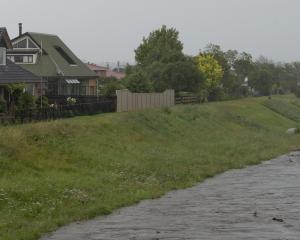A chronic aged residential care nurse shortage has left almost two-thirds of southern facilities without their required number of registered nurses.
Nursing and aged care worker unions have long argued that the sector was in a parlous state, but a recent Southern District Health Board survey sets out how bare the nursing cupboard is locally.
The survey was sent to 65 facilities, and 39 (60%) replied.
It found that half of aged care nurses routinely worked several hours overtime a week, and that 83% of managers regularly had to fill in on shifts where no staff were available.
Of the facilities which responded, one in five had fewer than their required number of nurses, and about the same percentage had had to deny admission to a new resident because nursing care was unavailable.
SDHB chief executive Chris Fleming has regularly warned that there was a crisis looming in aged residential care nursing, and his organisation’s survey has confirmed that almost half of facilities had been unable to replace departed registered nurses in the past six months.
"Without some deliberate action the challenges to provide sustained safe staffing within the sector will continue to deteriorate," the report attached to the survey said.
"Given that aged residential care is caring for our most vulnerable older people with high health needs this situation is particularly concerning."
The New Zealand Nurses Organisation has long advocated for compulsory safe staffing levels for aged residential care facilities, and in association with the E tu union held a series of stop-work meetings on the issue in August.
Dunedin NZNO organiser Colette Wright said there were few surprises for the union in the SDHB survey results, but it was heartening that the board recognised there was a problem and appeared committed to doing something about it.
"The survey’s findings reflect what we have suspected for some time . . . the demands on nurses in aged care to be able to provide quality care for residents is unsustainable within the current model, where minimum mandated staffing is not funded by the Ministry of Health.
Aged care nurses were being asked to work for less money and longer hours at understaffed work places, Ms Wright said.
"I know of an instance where a nurse was asked to work a 16-hour shift.
"Fortunately she said no, this isn’t safe, but this is clearly representative of how desperate employers are to cover those shifts."
The Government announcement yesterday of a 2021 resident visa, a one-off, simplified pathway to residence for about 165,000 migrants already in the country, would offer some help to the sector but more needed to be done to allow nurses to be recruited from overseas, Ms Wright said.
"The reality is that we don’t have enough registered or enrolled nurses in the country right now and that is something that Immigration [New Zealand] and the Ministry of Health need to be addressing fast because with our ageing population those issues are getting worse, not better."
On Monday, an SDHB committee will consider recruiting a workforce co-ordinator to a six-month role aimed at supporting potential nursing recruits to attain Nursing Council registration, as well as a range of other initiatives intended to increase nurse numbers.












